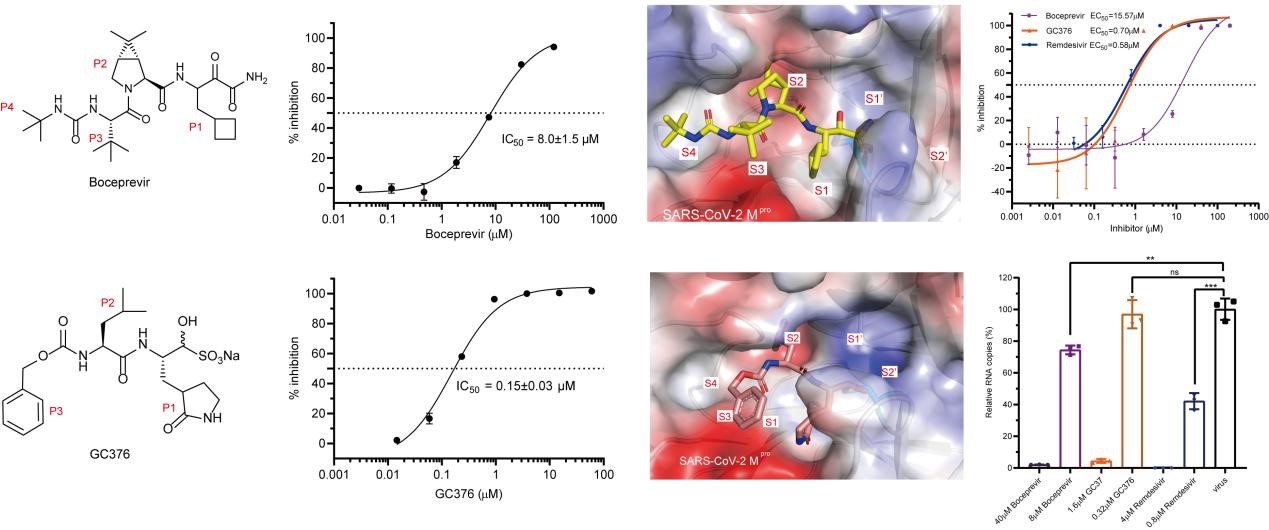COVID-19 was declared a pandemic on March 11 by WHO, due to its great threat to global public health. The disease has caused more than 27.6 million human infections with over 890,000 deaths globally. The virus caused COVID-19 was later named SARS-CoV-2 by the International Committee on Taxonomy of Viruses (ICTV). The SARS-CoV-2 main protease (Mpro, 3CLpro) is essential for viral polyproteins processing and maturation, therefore, it is recognized an attractive drug target. Actually, viral proteases are also promising targets for many different viruses including hepatitis C virus (HCV) and human immunodeficiency virus (HIV).
Recently, in order to discover anti SARS-CoV-2 drugs quickly, the group of professor Jianxun Qi, Xuebing Li and George Fu Gao from CAS Key Laboratory of Pathogenic Microbiology and Immunology, Institute of Microbiology, Chinese Academy of Sciences and the group of Wenjie Tan from National Institute for Viral Disease Control & Prevention, China CDC formed a joint research team. They identified two inhibitors, Boceprevir and GC376, can inhibit the enzymatic activity well from 18 chemical drugs by in vitro fluorescence resonance energy transfer (FRET) enzymatic assays. Boceprevir is a serine protease inhibitor that was approved by FDA to treat HCV infection in 2011. GC376 is a cysteine protease covalent inhibitor against picornaviruses, noroviruses and coronaviruses, and has shown promise in treating cats with fatal feline infectious peritonitis (FIP) caused by FIPV. These two inhibitors can inhibit Mpro activity with the IC50 values of 8.0 μM and 0.15 μM and SARS-CoV-2 in Vero cells with EC50 values of 15.57 μM and 0.70 μM, respectively. Moreover, combination of GC376 with Remdesivir treatment can enhance antiviral activity. Additionally, the high-resolution crystal structures of SARS-CoV-2 Mpro complex with these two inhibitors are solved to figure out their mechanism of inhibition.
In a word, the structural basis of interaction between the compounds and the main protease provides a good starting point for the optimization and design of more potent drugs against the COVID-19.
Dr. Lifeng Fu, Fei Ye and Yong Feng as the first co-author and professor Jianxun Qi, Xuebing Li, Wenjie Tan and George Fu Gao as the corresponding author. This work was supported bythe Strategic Priority Research Program of the Chinese Academy of Sciences, National Key Research and Development Program of China and National Natural Science Foundation of China.
https://www.nature.com/articles/s41467-020-18233-x.

Figure 1 In vitro activity and inhibition mechanism of boceprevir and GC376
Contact:
Professor Jianxun Qi
CAS Key Laboratory of Pathogenic Microbiology and Immunology,Chinese Academy of Sciences,100101,Beijing, China
E-mail: jxqi@im.ac.cn